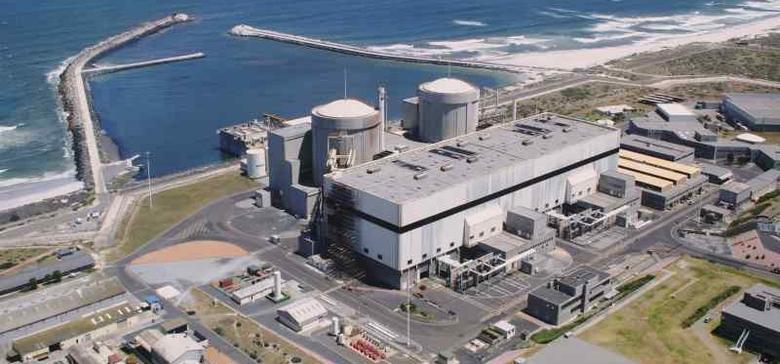
NUCLEAR WITH RUSSIA

SUNDAY TIMES - Former president Jacob Zuma has defended his lobby for a proposed R1tn nuclear energy deal with Russia, saying it would have solved the country's electricity crisis.
"The fact of the matter is nuclear could solve our problems, once and for all. Now we are in deep [trouble]. We are therefore increasing the debt of the country with no hope to bring it down. That's a problem," he told Times Select in an exclusive interview with Karyn Maughan, published on Friday.
A deal with Russia's Rosatom would have been in SA's best interests, he added.
South Africa is reeling after days of rotational load-shedding, often continuing throughout the night, as embattled power utility Eskom grapples with multiple plant breakdowns and struggles to meet demand for electricity.
The blackouts have caused traffic mayhem, forced small businesses to turn away customers and disrupted the economy.
And there is no quick fix on the cards.
"It's going to be a huge struggle ahead ... to actually overcome this crisis. We'll get it right in the next year or two," acknowledged public enterprises minister Pravin Gordhan at a media briefing on the power crisis on Tuesday.
Eskom board chair Jabu Mabuza admitted at the briefing that the power utility had spent R5bn on diesel in less than a year to run open-cycle gas-turbine peaking plants to keep the lights on – a prohibitively expensive and unsustainable exercise.
Zuma told Business Day that nuclear energy proposals by some countries were "very limited". A deal with Russia would have been in the country's best interests.
"Russia carried the biggest load in supporting us. Russia looked after our health, they never charged us a penny. So we cannot, when we are now free, forget about people who were our friends at the time of need," he added.
The Zondo Commission of Inquiry into State Capture has heard evidence by former finance minister Nhlanhla Nene that he was axed for refusing to endorse a nuclear deal.
Former National Treasury director-general Lungisa Fuzile told the inquiry in February that if Zuma's proposed nuclear deal had gone through, government would have breached the expenditure ceiling it set for itself, reported TimesLIVE.
The plan would have seen South Africa purchasing 9,600 megawatts of extra nuclear power from the Russians at a cost of about R1tn.
"It would have caused our country to breach the expenditure ceiling that government had set for itself," said Fuzile.
Quoting Gordhan, who was finance minister when the deal was proposed, Fuzile said that should anything go wrong it would make the arms deal "look like a Sunday school picnic".
-----
Earlier:

2019, March, 20, 10:15:00
SOUTH AFRICA'S NUCLEAR POWERSouth Africa must consider nuclear as a clean energy source that can be part of its electricity generation mix, Energy Minister Jeff Radebe said yesterday in his keynote speech at a business awards ceremony. |

2019, January, 14, 11:05:00
U.S. NUCLEAR FOR AFRICAISSUES - Yet the United States still has an opportunity to help interested African nations overcome the obstacles to realizing their energy ambitions. Whereas Russia and China have large government investments in a few advanced nuclear technologies, the United States has a robust and thriving private sector for advanced nuclear development, drawing on both decades of public research and development and a high-tech investment ecosystem. From large national laboratories to small venture-backed start-ups, the United States has over 50 firms working on a diverse portfolio of advanced nuclear designs, many targeting smaller or niche markets. |

2019, January, 11, 11:40:00
FAST ENERGY GROWTHU.S. EIA - Energy consumption in Asia, the Middle East, and Africa continues to grow rapidly, with about 20% growth in each region between 2010 and 2016, according to newly available data in EIA’s International Energy Statistics database. In particular, energy consumption has been increasing in the Middle East and Africa, driven by economic growth, increased access to energy markets, and quickly growing populations. Energy consumption in Asia grew even as energy consumption in China declined between 2015 and 2016. |

2018, December, 3, 11:35:00
SOUTH AFRICA'S NUCLEARWNN - Energy infrastructure is a critical component of South Africa's National Development Plan (NDP), which was published in 2011 and identifies the need for investment in a strong network of economic infrastructure designed to support the country’s medium- and long-term economic and social objectives. The IRP plays a crucial role in contributing to the objectives of the NDP, the Committee said in its report. |

2018, November, 22, 10:35:00
SOUTH AFRICA'S LAGGINGIMF - Some of the negative effects of the changing external environment are already being felt in South Africa despite its economic resilience. |

2018, September, 13, 14:00:00
NUCLEAR POWER NEEDS INVESTMENTIAEA - Overall, the new projections suggest that nuclear power may struggle to maintain its current place in the world’s energy mix. In the low case to 2030, the projections show nuclear electricity generating capacity falling by more than 10% from a net installed capacity of 392 gigawatts (electrical) (GW(e)) at the end of 2017. In the high case, generating capacity increases 30% to 511 GW(e), a drop of 45 GW(e) from last year’s projection. Longer term, generating capacity declines to 2040 in the low case before rebounding to 2030 levels by mid-century, when nuclear is seen providing 2.8% of global generating capacity compared with 5.7% today. |

2018, August, 29, 10:10:00
SOUTH AFRICA NUCLEAR STATICWNN - A draft updated Integrated Resource Plan (IRP) approved by South Africa's cabinet on 22 August sees the country's nuclear capacity remaining at its current 1830 MWe over the period to 2030. Energy Minister Jeff Radebe yesterday released the plan for public comment. |












